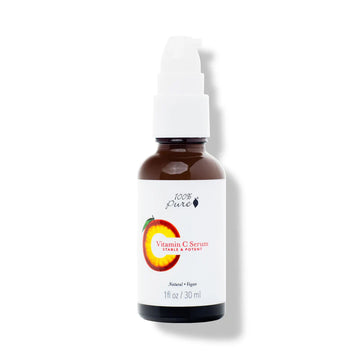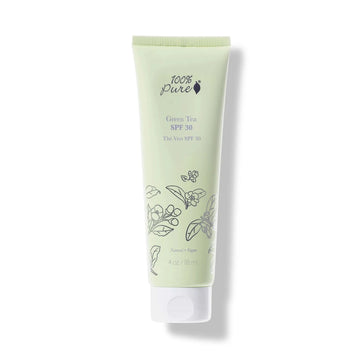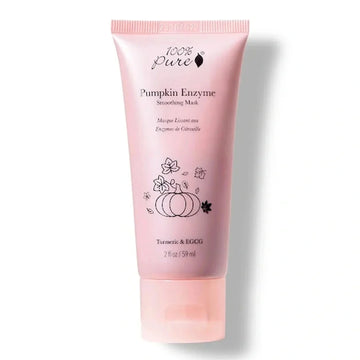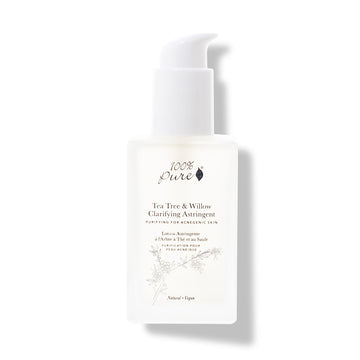Build your ideal skincare regimen with these tips!
Written by: 100% PURE ®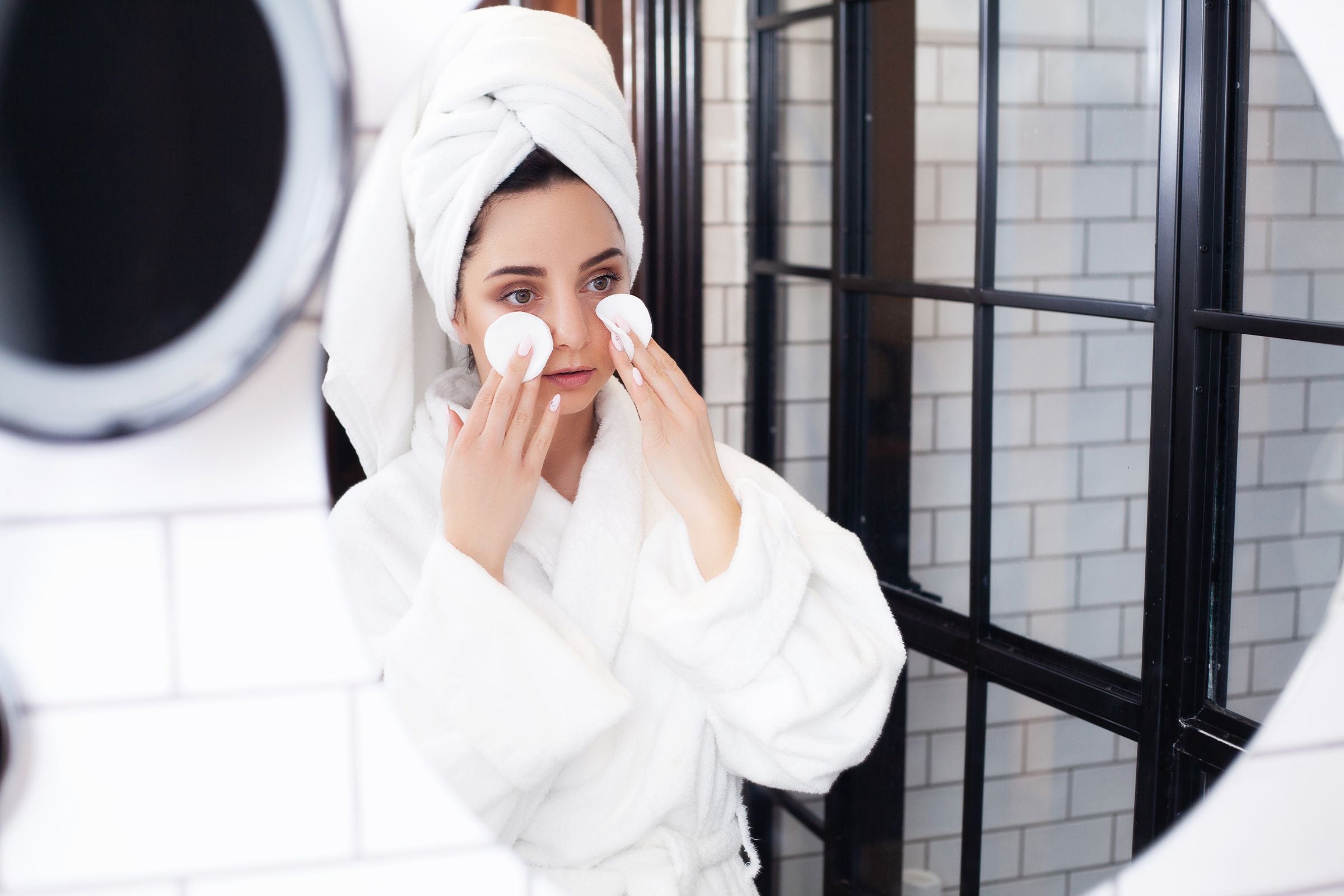
There’s no doubt that skincare is something we should all be practicing on the daily. But as the onset of apps like Instagram and Tik Tok have promoted the importance of skincare, users will often purchase certain products because their favorite skinfluencer swears by it.
The thing about skincare, however, is that it’s an incredibly personal experience, and what works for someone else might not work for you.
If you’re looking for ways to improve your skincare regimen, we have a great place to start: knowing your skin type.
When you know your skin type, you have an idea of what behavior you can expect from your skin, and how to act accordingly. More importantly, it will tell you what ingredients you should stick with, and what’s best to avoid.
But before we dive into skin types, let’s chat about what skincare products we should all be using daily.
Ultimately, the products best for your own daily regimen will depend on your skin type. Still, there are a few skincare staples everyone should be using daily.
Here are the best three daily products to boost your skincare routine.
Vitamin C Serum
A high-quality serum containing stabilized vitamin C should be a fixture in every skincare routine. This bright and cheery antioxidant has been shown to protect your skin from long-term sun damage, balance oil levels, and reduce the appearance of hyperpigmentation and wrinkles.
Peptide Serum
Peptides, also referred to as “polypeptides,” are compounds containing amino acids, which are the building blocks of proteins needed by the body in order to properly function.
Peptides also offer benefits for the skin, which is why you’ll often see them in skincare serums.
One of the ways peptides help the skin is by forming an extra protective barrier around the skin. While our natural skin barriers protect us from pathogens, UV rays, pollutants and more, it can sometimes weaken. Peptides help strengthen the barrier against this.
Additionally, peptides help with the production of collagen, which keeps the skin bouncy and firm. And with its antimicrobial properties, a peptide serum can even help protect against acne!
SPF
Any skincare professional will tell you that sunscreen is important, and for good reason! Sunburn can occur when you spend extended periods of time outdoors without sunscreen, and it can lead to several forms of long-term damage. Such lasting effects include premature wrinkling, dark spots, and skin cancer, among other issues.
When you apply your SPF and don a hat outside, you’re making a big difference in the level of damage your skin faces every day, so make sure to always have sunscreen in your daily regimen!
Depending on who you ask, the number of skin types can vary; while many blogs will describe four skin types, while others might say there are 5-7. But to keep things simple, we typically keep it to the main four: normal, dry, oily, and combination. While some might also include “sensitive,” “acne-prone” and “mature” as skin type categories, we consider these more to be qualities that any of the four skin types can possess.
Ultimately, your skin type is determined by the functionality of your skin barrier–particularly when it comes to water content.
Our skin barriers protect the skin by blocking out pathogens and pollutants from our surrounding world. And when they’re not properly functioning, the skin barrier’s ability to produce lipids and retain moisture can become weakened. For many individuals, this is the underlying cause of a dry skin type.
Understanding your skin type is key to creating a perfect skincare routine for your needs, because it helps you determine which ingredients to reach for and which to avoid.
Newsletter Subscribe
for more blog updates and exclusive discounts
Do I have oily, dry, or combination skin?
Now, let’s talk about what makes a skin type, and which one describes yours.
Before we get started, it’s worth mentioning that you can have a few characteristics from each category. When this happens, take note of those outlying characteristics, but stick with a routine that fits the big picture.
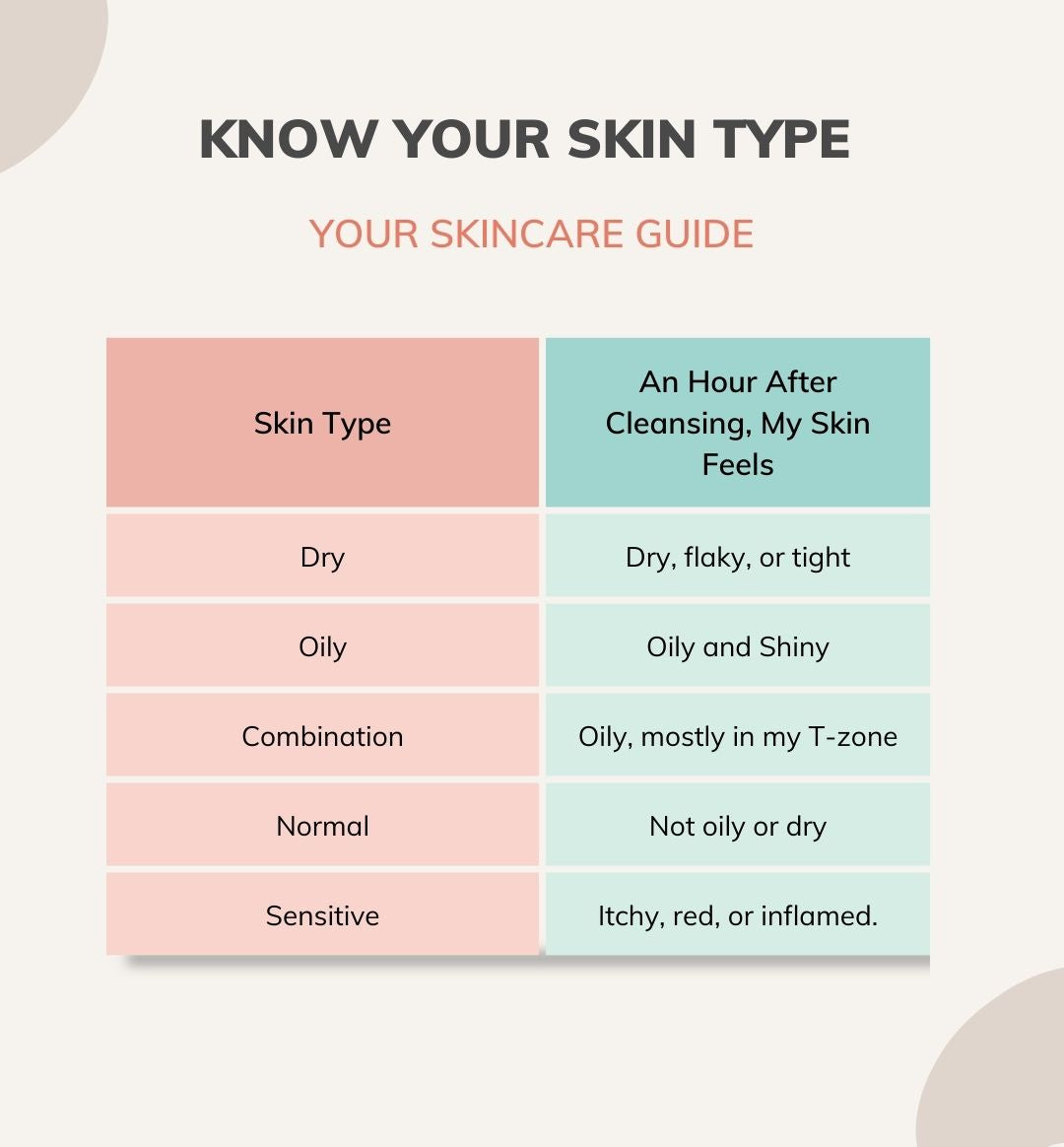
Normal
When your skin type is normal, this generally means that it’s well-balanced. In other words, it’s not too oily or dry, and it generally tolerates most treatments and products. Normal skin types often feature small pores and even texture, though this may vary.
Normal skin types are characterized by:
-small pores
-moderate oil levels
-occasional, mild breakouts
Dry
If your skin tends to feel tight and stripped after cleansing, and you experience flakey, rough skin, there’s a good chance that you have a dry skin type.
Dry skin types are prone to barrier damage, which can lead to rapid water loss in the outer layer. Dry skin types also exist on a spectrum. While a rough texture is especially prevalent, you can also experience flaking and peeling, depending on the state of your skin barrier.
That being said, those who experience dry skin to the point of cracking and bleeding should see a dermatologist, as this could be a sign of a skin condition.
Dry skin types are characterized by:
-rough, flakey texture
-dull, blotchy complexion
-few breakouts
Oily
Oily skin types typically involve an excessive amount of sebum in the skin, and this is often associated with genetic factors. While you might not be able to change your skin type, it’s possible to keep sebum production in check.
Oily skin types are characterized by:
-Shiny, slick skin
-large pores
-moderate to frequent breakouts
Combination
Combination skin involves the characteristics of both oily and dry skin types. Usually, signs of combination skin are prominent in the T-zone, which comprises the chin, forehead and nose. With oily skin types, this area will be oily, while other parts of the face, such as the cheeks, experience roughness and patchiness.
Combination skin types are characterized by:
-Some oiliness in the T-zone
-occasional bouts of dry, rough skin
-occasional to frequent breakouts
Once you pinpoint your skin type, you can start to upgrade your skincare routine based on your skin’s needs.
Here are some of the best products for each skin type:
Normal
While normal skin types require the least amount of maintenance, a daily skincare routine is still important for keeping it healthy.
-Apply a broad spectrum sunscreen every day to protect skin from sun damage
-Exfoliate on a weekly basis
-Double cleanse to avoid buildup of bacteria, sweat, sunscreen and sebum
-Moisturize daily as needed
Dry
Dry skin types benefit from hydrating, restorative products, so stick with gentle formulas and avoid products containing astringents like alcohol and witch hazel.
-Use a moisturizing cleanser
-Stick with ingredients like shea butter, glycerin and hyaluronic acid
-Exfoliate with an AHA or enzyme mask
-Prioritize your moisturizer
Oily
When it comes to oily skin types, skincare is all about keeping your sebum levels in check to prevent the pores from clogging.
-Stick with oil-free products
-Use ingredients like willow bark, tea tree and witch hazel
-Double-cleanse to to prevent sebum buildup without stripping the skin
-Moisturize with lightweight formulas
Combination
People with combination skin will often improve their skincare routines by including products for both dry and oily skin types. While you might need to experiment a bit in order to find what works for you, there are some tips that’ll help get you started.
-Keep your skin hydrated with weekly face masks
-Keep a pressed powder or blotting papers on hand throughout the day
-Use a heavier moisturizer at night and a lightweight moisturizer throughout the day
-Avoid cleansing more than once a day
- Tags: November-2022, skincare
We carefully hand-select products based on strict purity standards, and only recommend products we feel meet this criteria. 100% PURE™ may earn a small commission for products purchased through affiliate links.
The information in this article is for educational use, and not intended to substitute professional medical advice, diagnosis, or treatment and should not be used as such.



